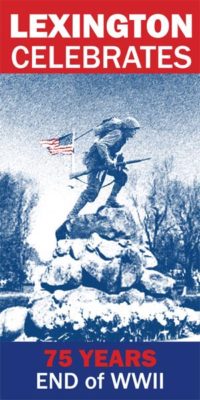By Jane Whitehead   |   Why are Victorian novels so long? Why do the works of Charles Dickens still enthrall us, over 140 years after his death? What’s the connection between a rare Amazonian water lily, a great northern English estate, and London’s Great Exhibition in 1851?
These and many other questions will be answered in a richly-illustrated lecture series on Charles Dickens and Victorian Society, given by 19th century scholar, author and editor Tatiana Holway, of Winchester. Sponsored by the Friends of Cary Memorial Library, the lectures will take place in the Lower Level Meeting Room at 7:00 p.m. on October 11, October 18, November 1 and November 8.
Holway’s fascination with the Victorians started when she was studying for her PhD at Columbia University, she said in a recent telephone interview.
Her publications on Dickens include a 2005 Barnes and Noble Classics edition of Bleak House, with a new introduction and notes, and she has become the go-to Dickens expert for PBS. Her commentaries accompanying recent Masterpiece Theater productions, including Little Dorrit and The Old Curiosity Shop, can be seen on the PBS website, at www.pbs.org/wgbh/masterpiece.
The Victorian era, said Holway, was a time of “continuing, enormous change,” and Victorian novels are in many ways “a kind of index of the scale and rapidity of change.” They’re also great stories, she said, and we still relate to them “because so much of what we think of as modern is in many ways Victorian.”
Holway’s first lecture will bring to life the cultural, social and economic world that gave rise to Vanity Fair, David Copperfield, Middlemarch, and so many other hefty 19th century novels that remain popular today. Her second will focus on Charles Dickens himself, on how his contemporaries saw him, and ways in which his life and art still resonate with us today.

The bud is closed during the day. In the late afternoon a pinapple-like perfume signals the appearance of the magnificent blossom.
The two November lectures will give a behind-the-scenes look at Holway’s adventures in English historical archives, while researching her latest book, slated for publication by Oxford University Press in Fall 2012. The story, she said, is the “crazy but true” tale of the discovery of a huge Amazonian water lily in British Guiana, in 1837, and how it inspired the landscape gardener and architect Joseph Paxton to design what was then the world’s largest building, the Crystal Palace.
 Paxton, the head gardener at Chatsworth, the Duke of Devonshire’s estate in Derbyshire, received a cutting of the Victoria Regia water lily in the year of its discovery. In spite of the chilly climate in England’s mountainous northern Peak District, he succeeded in propagating the plant in a heated pool, and within three months its leaves were almost 12 feet wide. A contemporary print shows his little daughter Annie sitting on one of the vast leaves.
Paxton, the head gardener at Chatsworth, the Duke of Devonshire’s estate in Derbyshire, received a cutting of the Victoria Regia water lily in the year of its discovery. In spite of the chilly climate in England’s mountainous northern Peak District, he succeeded in propagating the plant in a heated pool, and within three months its leaves were almost 12 feet wide. A contemporary print shows his little daughter Annie sitting on one of the vast leaves.

All Victoria amazonicas are night blooming. Their leaves can stretch to seven feet and look like giant skillets.
Too large to fit into any existing greenhouse, the giant plant gave Paxton the idea for a new design of conservatory, using a combination of radiating ribs connected with flexible cross-ribs. His experiments in glass-house design at Chatsworth were the foundation for the Crystal Palace, the vast cast-iron and glass construction he designed to house London’s Great Exhibition in 1851. “Nature was the engineer,” he said of this pioneering building.
Holway followed the trail of the water lily and the architect to Chatsworth and Kew Gardens, shivering in cold, drafty libraries, puzzling out connections between explorers and noblemen, between the Victorian craze for botany and new methods of industrial production. Cary Library audiences will be among the first to hear some of her surprising discoveries.
Friends of Cary Memorial Library, Inc. is a non-profit dedicated to supplementing and enhancing library services. The Friends act as advocates for the library and its users, and belong to a state-wide Friends library service organization lobbying government for support, i.e. MFOL (Massachusetts Friends Of Libraries)

